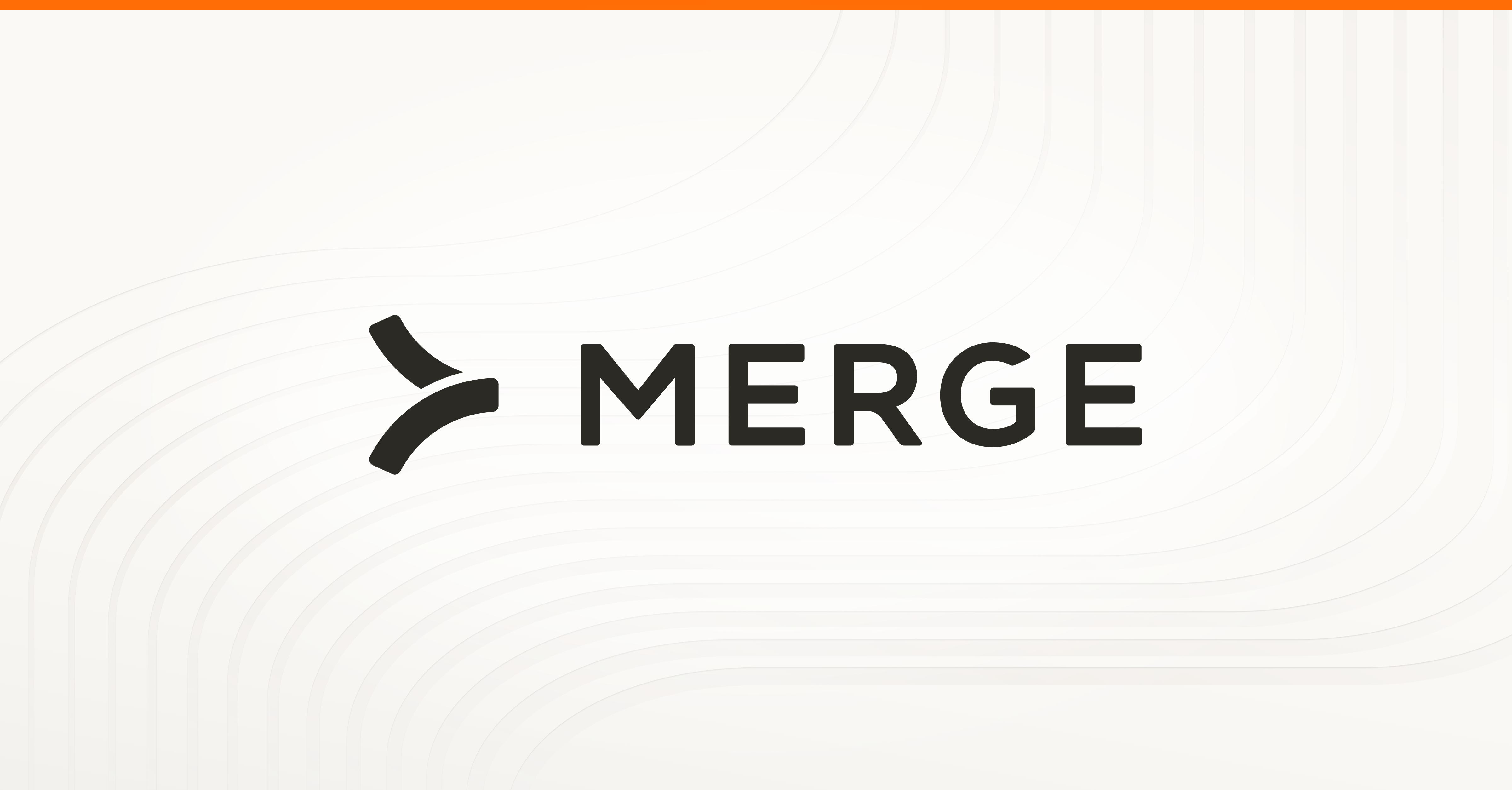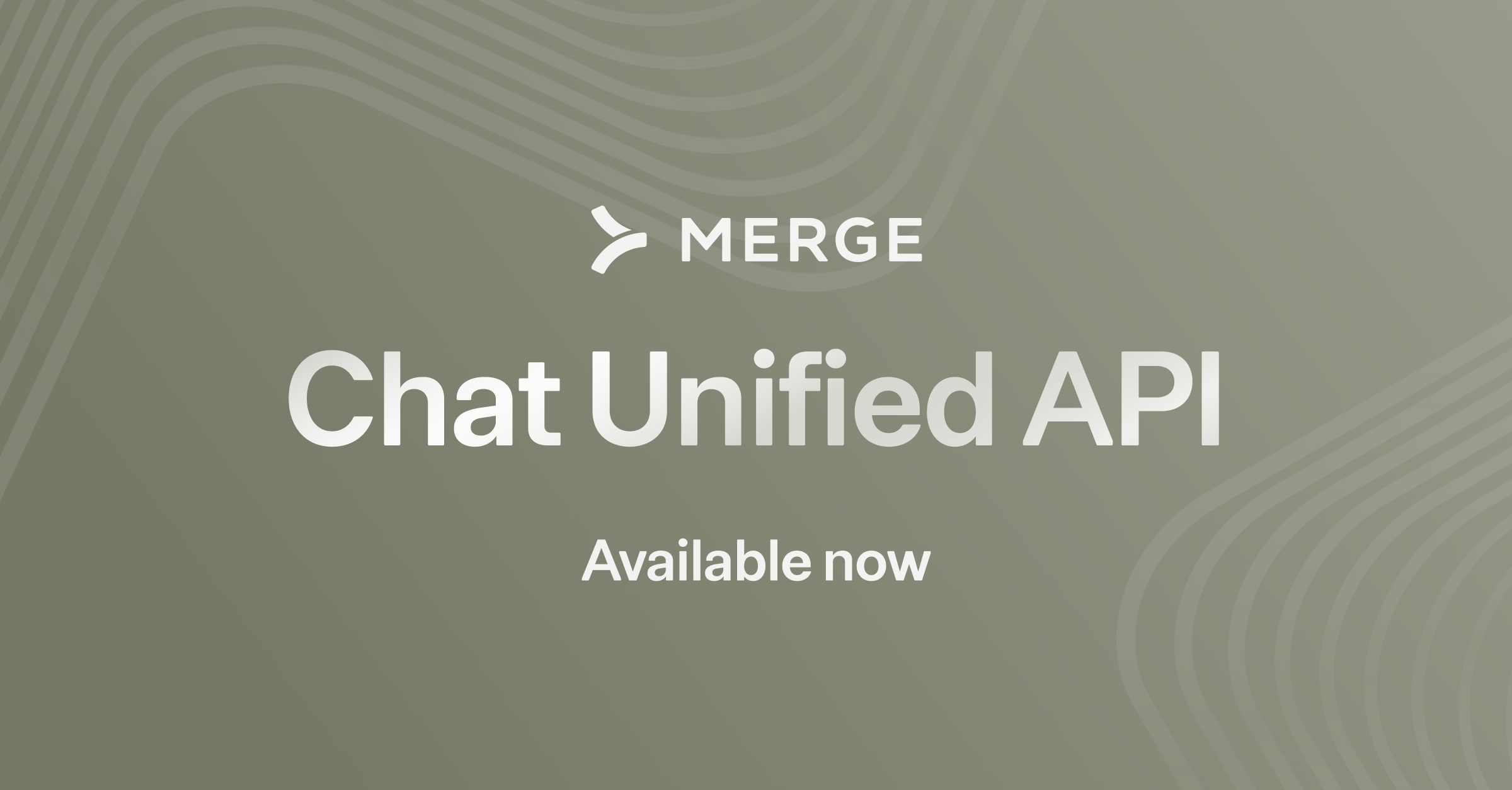Powering AI with product integrations

In the age of AI, data reigns supreme. AI companies strive to extract meaningful insights and make accurate predictions, all in the pursuit of enhancing decision-making processes. Whether founding a new company, bringing a new AI-enhanced product to market, or improving an existing product with AI, a wide range of companies can benefit from broadening the data set their products have access to.
To achieve this, they require vast amounts of data from various sources—a place where B2B software integrations play a pivotal role. By integrating with their customers' systems of record, AI companies can gather diverse datasets, fueling their AI products and enabling them to operate at their full potential.
Note: Learn how Merge can power your AI product's features and capabilities here.
Integrations fuel B2B AI products
Software integrations serve as a backbone of data acquisition for B2B AI companies. These integrations allow companies to tap into an array of their customers' data sources, such as customer relationship management (CRM) systems, accounting systems, HR records, e-commerce platforms, social media networks, and more. Software integrations can automate the data collection process, ensuring a constant flow of up-to-date information that powers AI algorithms, making them more accurate and reliable.
Here are several examples:
- An AI-powered customer service solution can integrate with CRM systems to access customer profiles, purchase history, and support ticket data. This integration provides a holistic view of customers, enabling the AI tool to deliver personalized and efficient customer support.
- An AI-powered marketing platform can integrate with email marketing tools, social media management systems, and analytics platforms. By doing so, the AI tool can access real-time campaign data, target audience segments, and performance metrics, thus optimizing marketing strategies with AI-driven insights.
How AI companies use product integrations
Gong is a revenue intelligence platform that uses AI to derive useful insights about sales conversations and customer interactions. Gong offers an extensive array of integrations that bring in more context, such as support calls and chats, to their AI-powered customer insights.
Ramp is a spend management platform that recently released a suite of AI-powered features called Ramp Intelligence. Ramp integrates with more than 1,000 services—including banks, accounting systems, and HR systems—that help automate user workflows and provide a data foundation for many of their AI-based features.
Apollo is a sales intelligence and engagement platform that automates prospect engagement workflows with AI. These AI-powered sales plays and emails work with contact data from integrations with leading CRM and marketing automation tools.
Peoplelogic is an employee engagement platform that uses AI to recommend actions to improve employee experience. AI-based insights are generated from data collected by integrations to CRM, support, collaboration, and HR systems.
Kraftful is an AI tool for user feedback, or as they put it "ChatGPT but for Product Research." Since launching on ProductHunt in February they have been wildly successful with this new approach to sifting through and gathering insights from customers. To power these insights, they offer support and helpdesk integrations—such as Zendesk and Intercom—to capture data from users. Their AI then synthesizes user feedback and sentiment from these support tickets and call transcripts using ChatGPT.
Erudit is an AI-powered product for workforce insights, including employee productivity, happiness, and engagement. This helps employers predict and prevent turnover in their teams. In order to generate these insights, Erudit has product integrations that connect to collaboration tools such as Google, Slack, and Microsoft Teams. Analyzing this data set with AI allows Erudit to offer survey-free employee sentiment analysis.
FutureFit AI is an AI-powered tool for workforce development. FutureFit AI pulls data from a variety of labor data sources, including job boards, to create a personalized roadmap of learning, resources, and work opportunities for their career.
Related: A guide to AI connectors
Common integration use cases for AI companies
Your customers use a wide variety of tools to store their corporate data. The following systems of record are a common starting point for B2B AI integrations:
Recruiting and HR data: Candidates, new hires, and employee records form the basis of a new set of talent tools. Examples: Hireguide, Leena AI, Sinecure, Tangelo
Accounting data: Revenue, expense, tax, and balance sheet info can be quickly turned into financial insights by AI-enabled FP&A products. Examples: Affinda, Boast.ai, Digitoo
CRM and Marketing data: Account, opportunity, contact, and campaign data provides a rich set of information for sales and marketing AIs. Example: Persado
Customer Support data: Chats, emails, and calls are a logical starting point for AI-based synthesis and analysis. Examples: Ada, inFeedo, Macorva Customer Experience
Task Tracking and Collaboration data: Corporate chat, email, and project planners can provide a basis for AI-assisted analysis of employee productivity and sentiment as well as useful tasks such as note taking. Examples: Anecdotes, Railtown AI
Document data: Documents stored in online file drives can power AI features such as identifying plaintext sensitive keys to proactively alert information security teams. Examples: Google Document AI, Ocrolus
Adding B2B integrations to power your AI products
B2B software integrations serve as a fundamental enabler for AI companies, facilitating data gathering and augmenting the capabilities of their AI tools. However, building and maintaining integrations is time consuming, even for talented engineering teams. Normalizing data from multiple data sources into a coherent format for AI tools to process is a further challenge.
Merge offers Unified APIs that make it simple to add hundreds of integrations—accounting, CRM, HR, file storage, marketing, recruiting, ticketing, and more—to your product. With these integrations your customers can link their accounts to your software and Merge will continuously sync data for your AI-powered product to work its magic. Sign up for free or chat with our team to better understand how a Unified API can speed your time to market and give you the data you need to grow your business.








.png)


